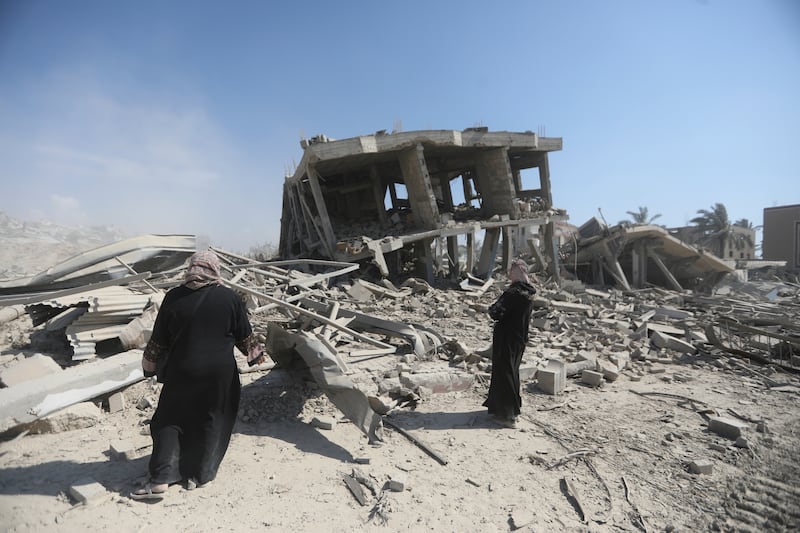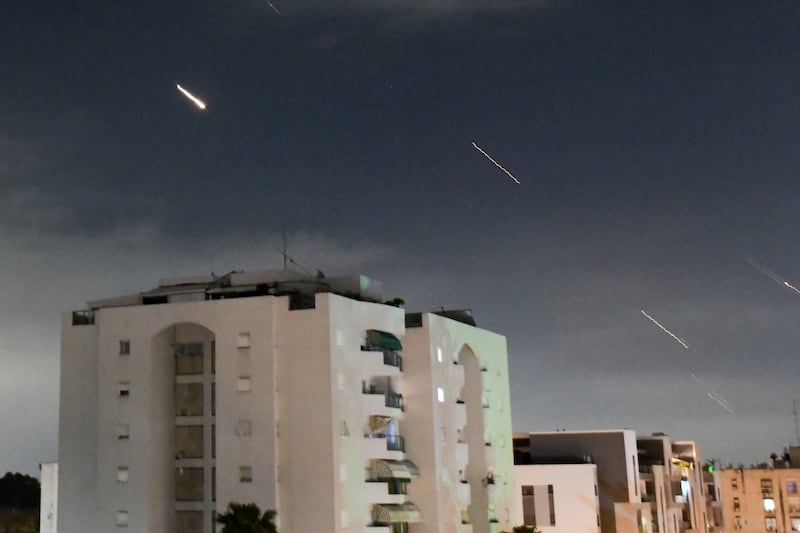It’s not difficult to find culprits for what is happening in the Middle East, for so long a plaything of powerful empires intent on putting their own interests first.
In a sense, God was the first colonist, gifting land to Abraham with the words: “I will make you a great nation and I will bless you.”
This vengeful Old Testament God often deployed weapons of mass destruction to impose his will. Were he about today, his swarms of locusts would be drones, boils would be brought about by biological warfare, and terrorism would claim the first-born.
Abraham’s ‘promised land’ was the cradle for three faiths. For Christians, Muslims and Jews, Abraham is a great prophet, chosen by God as a link with mankind.
The Bible tells us God promised Canaan – current day Israel, Syria and Palestine – to Abraham and his descendants. That promise is the theological foundation for the state of Israel. It matters not that archaeologists have been unable to establish that Abraham existed, unlike other Biblical figures.
- How many more lives must be lost in Gaza before the world comes to its senses? – Tom CollinsOpens in new window
- I had high hopes for Joe Biden, but hope and history has failed to rhyme – Tom CollinsOpens in new window
- Need for restraint at dangerous moment for Middle East - The Irish News viewOpens in new window
Coveted for its strategic and economic importance as a pivot between Europe and Asia, the area we call the Middle East has been fought over for millennia. It would have been prized for its location alone; but religion has introduced another layer of complexity, and we have not yet got over the trauma to the relationship between Christians and Muslims caused by the Crusades.
And then came oil, discovered in Iran – then Persia – at the beginning of the last century, and fully exploited from 1945 onwards. It gave Arab nations clout.
When you introduce the British into the equation (yes, its empire has a lot to answer for) you end up with all the ingredients for a modern-day conflict which has had fearful consequences for those on the ground, and repercussions for the rest of the world.
As with Ireland and India, partition was Britain’s solution. Subsequent instability has resulted in three major fractures in geopolitics.
I am not one of those who believes that responsibility for conflict in the Middle East can be reduced to the simplistic apportionment of blame to one side or other. Arabs and Jews have both been victims of heinous crimes against humanity; combatants from both sides have also perpetrated acts of terror.
But neither do I believe that we should walk away uttering the words “a plague on all your houses”.
The world needs a solution to the conflict in the Middle East, not just Israelis and Palestinians. If it does not find one, we will reach a tipping point that turns regional conflict into a global one. But it is not just self-interest here. We have a duty to our fellow human beings there who have been deemed expendable by Israel and by Hamas.
What is happening in Gaza (at the behest of a so-called democratic government) – and the apparent indifference to it in Washington and London – is almost beyond words.

We can have a discussion about the causes of the current conflict, but it did not begin with the Hamas raid in October last year. Israeli exceptionalism – embodied in its corrupt and dissolute leadership – and its refusal to find an accommodation with Palestinians has undone much of the peace building.
And the United States’ decision to renounce its role as an honest broker, throwing its lot in with Netanyahu and his cronies on the fundamentalist right, has done little to make Israel safer. Instead, it has provoked those (such as Iran) who see conflict with Israel as a proxy for its own ideological ends.
The world needs a solution to the conflict in the Middle East, not just Israelis and Palestinians. If it does not find one, we will reach a tipping point that turns regional conflict into a global one
The weekend’s attack on Israeli targets by the regime in Teheran makes the situation now even more fraught. The west’s military – US, France, Britain – was actively engaged in repelling Iran’s assault. But where are the peacemakers?

One of President Biden’s strengths on taking office was said to be his experience in foreign policy. Yet this is one of the areas where his administration has made little or no headway during his term in office.
Friendship with Israeli should not be an excuse to turn a blind eye to naked injustice, and Netanyahu’s imperialism. The Old Testament God has failed. It’s time to give the New Testament one a chance. Blessed are the peacemakers.




